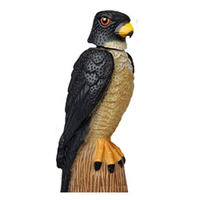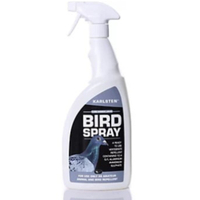Pest experts reveal how to keep pigeons out of your garden without causing harm
Tired of nosey pigeons nibbling at your veg patch and leaving their mess on your garden furniture? Try out one of these expert tips to deter them for good
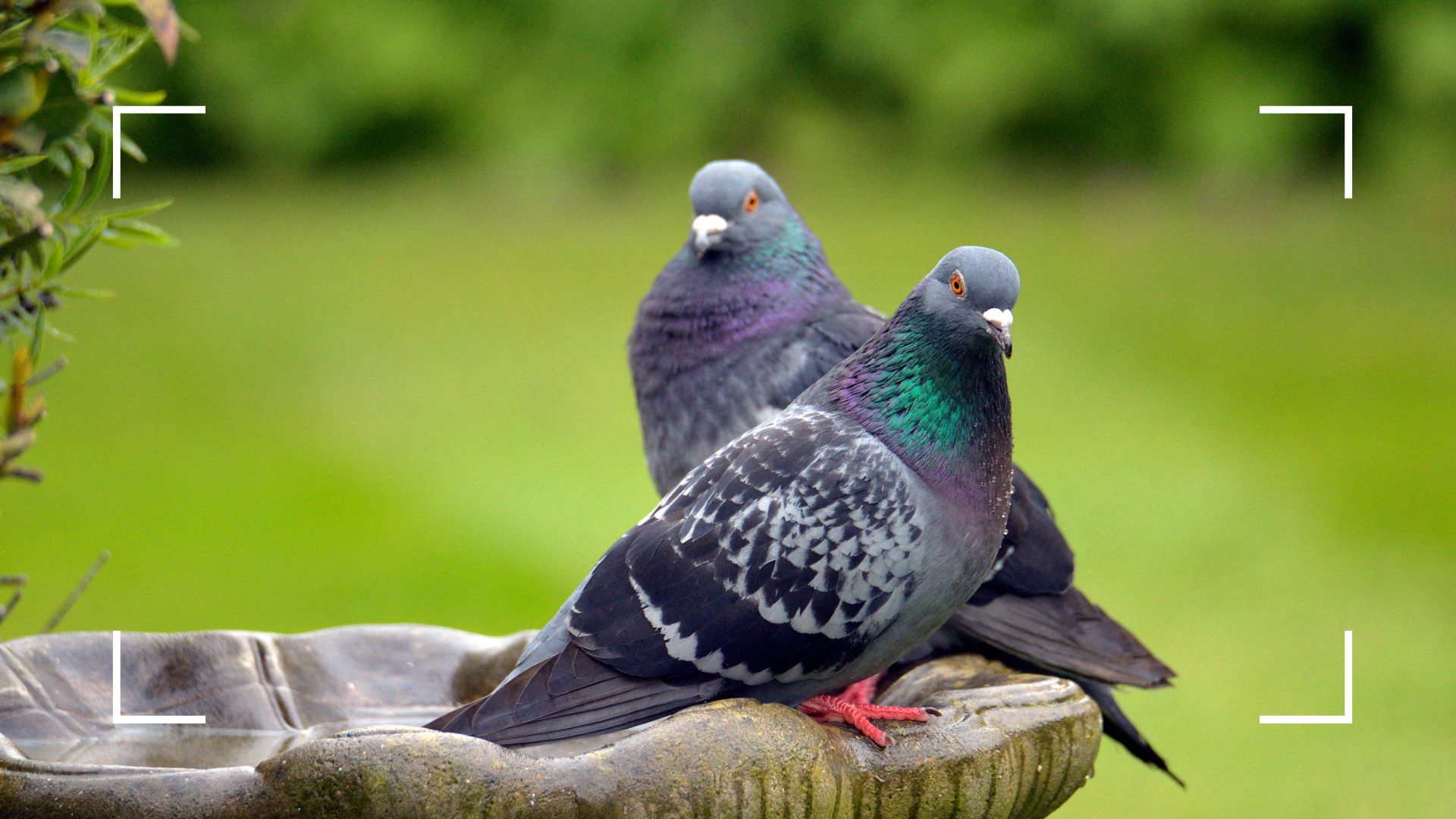

If you are finding it hard to relax in your garden because you're constantly fighting off swooping pigeons and cleaning up after them then try these hacks for a pigeon-free life.
Whilst you may have mastered how to stop foxes coming into your garden, pigeons are a completely different issue to tackle. And whilst you may be participating in the rewilding trend and welcoming wildlife into your garden, pigeons can be a nuisance you can do without.
Considering this, we asked pest control and animal experts for their foolproof humane hacks to keep these pesky pigeons away.
How to stop pigeons coming into your garden
Whether you want to protect your best outdoor furniture or have noticed birds have been eating away at the alluring plants in your garden, these measures will certainly come in handy.
1. Make your garden less inviting
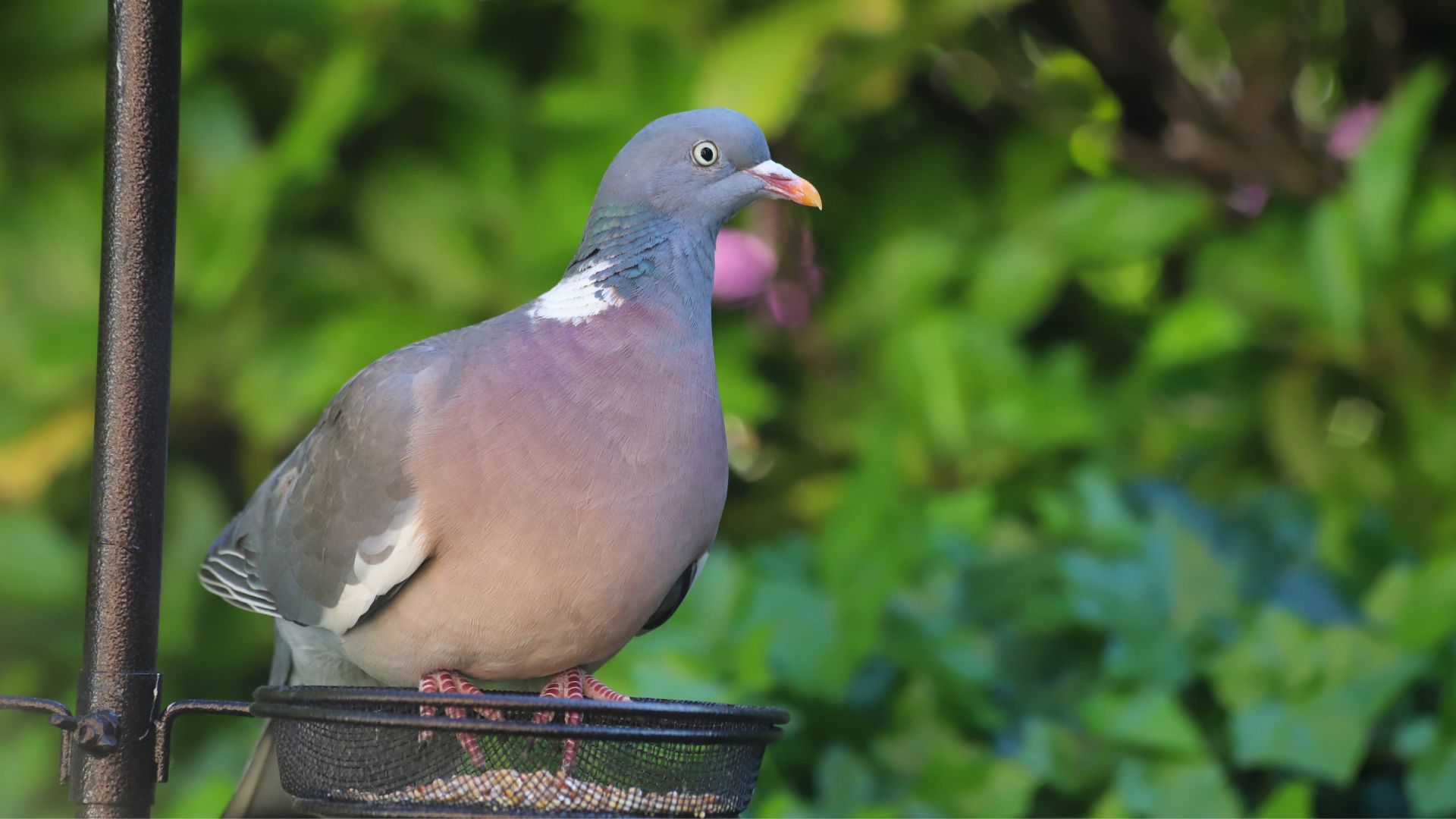
Before you can put any deterrents in place it's important to take away things that may be bringing the pests into your garden in the first place. Similar to how you would get rid of ants in your home, with no food there's really nothing enticing them back.
Dr Daisy May, veterinarian and pet care writer, says, "I always recommend first removing any appealing food, water or nesting spots before deploying deterrents. That initial step makes your garden less hospitable."
Take a look around your garden and see if any places would be particularly appealing for pigeons, perhaps a leaking bird feeder or hole in your shed. If there's nothing of note then you can start bringing in deterrents.
Sign up for the woman&home newsletter
Sign up to our free daily email for the latest royal and entertainment news, interesting opinion, expert advice on styling and beauty trends, and no-nonsense guides to the health and wellness questions you want answered.

After graduating from Veterinary school, Dr May began working at a small animal practice as a 'locum' consulting and surgical vet. She's also worked at Chester Zoo where she gathered expertise on zoo medicine and now runs a pet-care blog All About Parrots in her spare time.
2. Set up bird deterrents
You can choose from several types of deterrents, all with varying degrees of effectiveness and maintenance. Deterrents are a great choice if you're looking for sustainable garden ideas as they usually don't disturb the rest of your garden unlike other measures and they're also long-lasting.
"One way to deal with pigeons in your garden is to set up bird deterrents. This is the safest option because there’s a law in the UK and EU protecting all wild birds. This means it’s illegal to use any harmful ways to deal with any pigeons in your garden and their eggs," explains Fantastic Pest Control's pest technician Mihail Velev.
A common deterrent is the method of hanging CDs or foil on a string, the reflection will disorient them and discourage the pigeons from entering your space. Mihail also suggests using bright colours in your garden, why not try out one of this year's garden trends whilst you're at it and redecorate your space completely?
"There are also many different types of bird-scaring decoys you can use. For example, the most effective ones would be those that look like prey birds. Consider investing or DIYing a realistic model of a prey bird, such as a hawk in your garden," says Mihail.
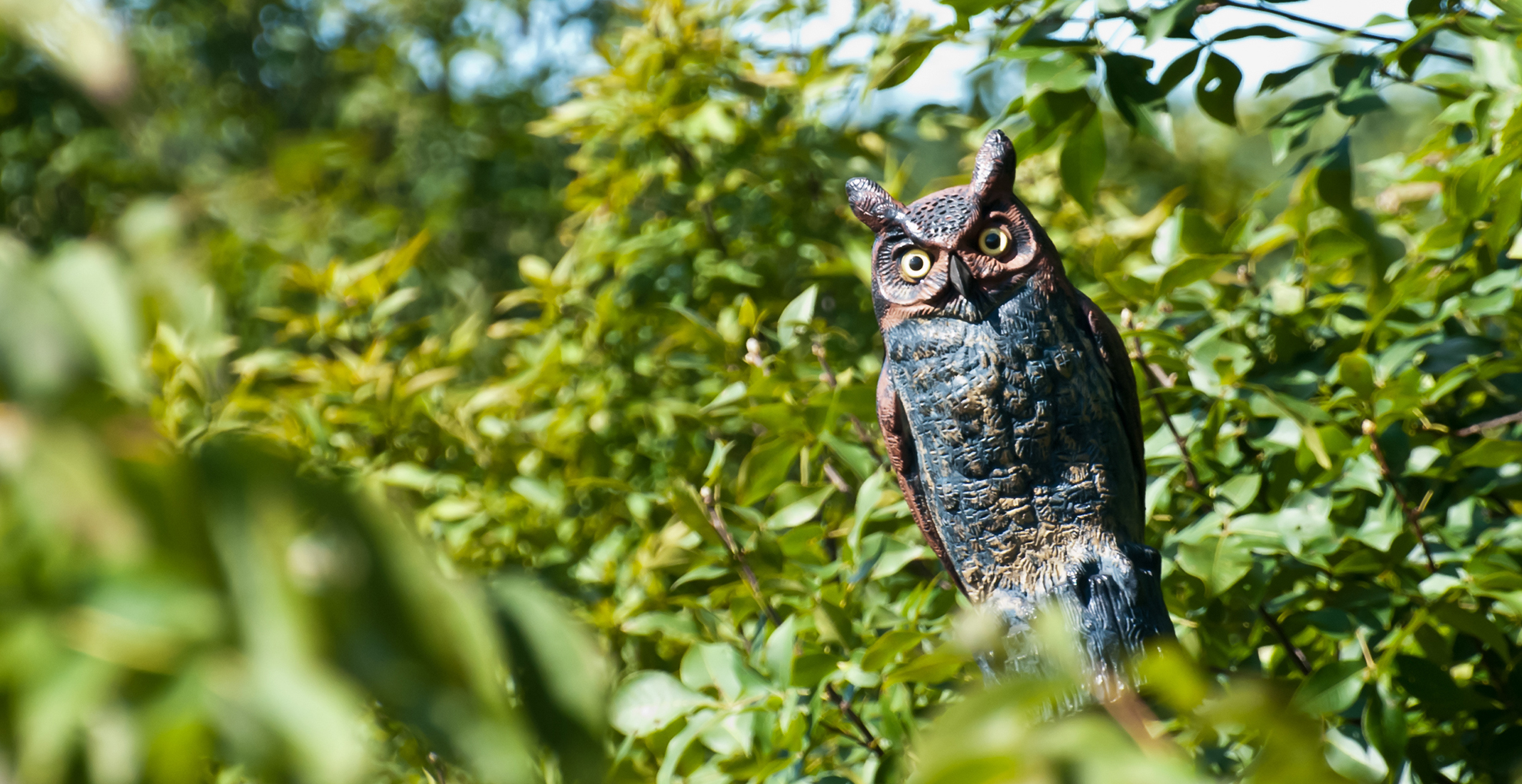
"Keep in mind that with this method, you’ll need to change the position of the dummy or the pigeons frequently will likely be able to figure out that it doesn’t pose a real danger. Birds usually get scared by sounds because they’re sensitive animals, so consider using the sounds of prey birds as well to make the scarecrow method more effective by setting up a recorder to play when you notice any pigeons or find out when they are the most active," he continues.
PestExpel Realistic Falcon Wind Action Decoy Scarer Deterrent: £19.95 at Amazon
Not only will this realistic falcon scare off any persistent pigeons, but its head also turns in the breeze which increases its effectiveness massively. This model is also made from weatherproof plastic and will protect your plants through every season.
3. Use sprinklers
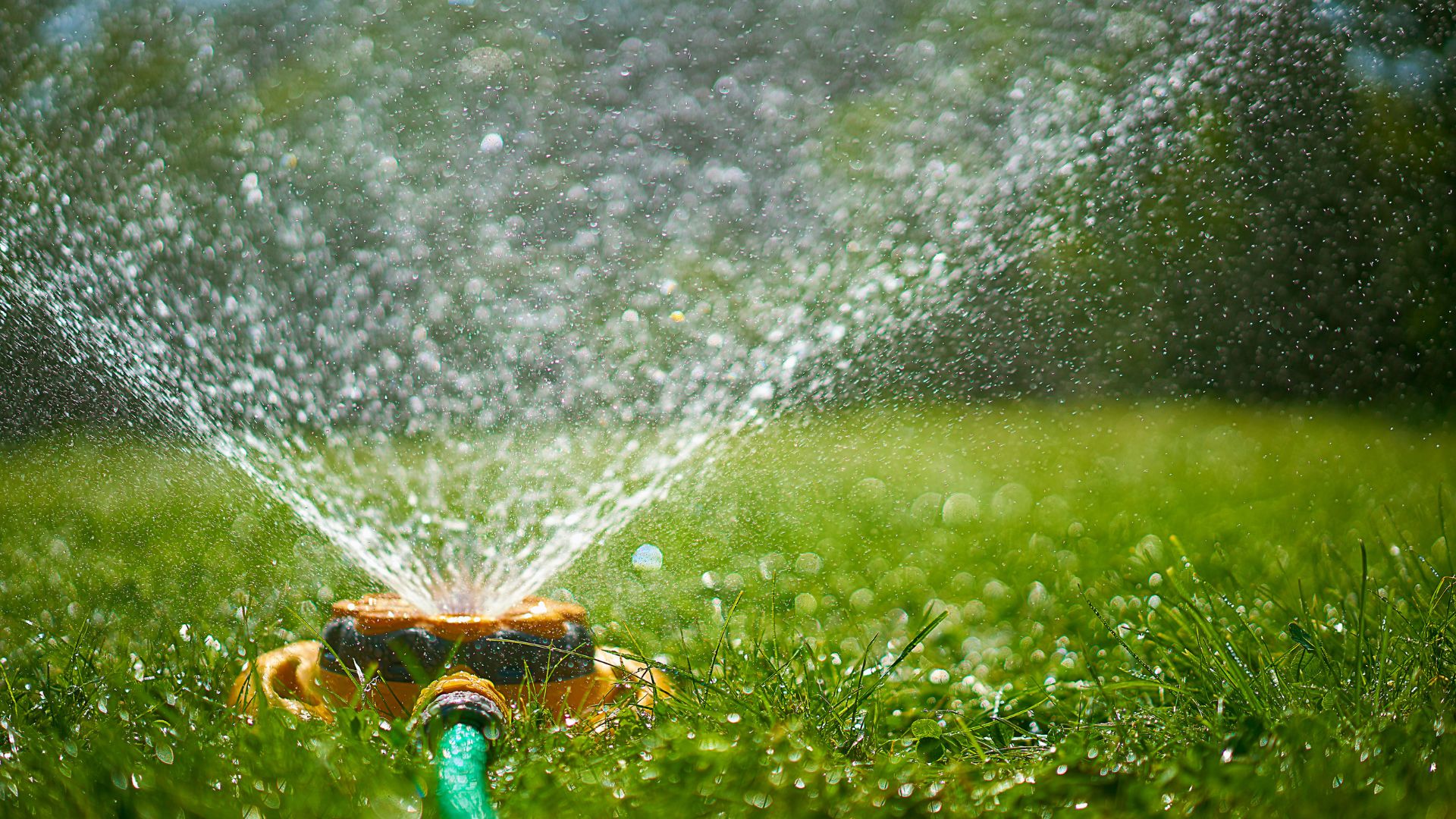
Should you be still struggling with a pigeon problem after installing deterrents then you may have to take on a more hands-on approach. Just as you would use eggshells in your garden to make the soil uncomfortable for snails and slugs, you can set up sprinklers to do the same for pigeons.
Mihail says, "A harmless way to deter them is to use a hose to spray the birds with water when you notice them in your garden. This will scare them away, however, this won’t be enough on its own because you’ll need to be always on watch for them, so you’ll need to implement other methods too."
He suggests investing in some motion-sensing sprinklers as they'll be able to detect when pigeons approach and splash them with water without causing any harm. This method may also scare other wildlife that you want in your garden so only choose this option if you're happy to keep your garden animal free.
4. Use spices as a repellent
If you're one for budget garden ideas, then using different spices in your garden is a great inexpensive method.
"Scatter spices, such as cinnamon, black pepper or chilli powder, whose smell pigeons dislike," recommends Mihail. "If you decide to simply scatter any spices across your garden’s ground, keep in mind that you’ll need to re-apply them regularly, especially if it rains because they’ll be washed away. Alternatively, you can also put them in fabric bags and hang them up."
Should you be weary about the spices being eaten or touched by pets or children then you can use spray bird-repellent liquid. These sprays usually contain chemicals that won't be harmful to the pigeons, they'll simply leave a bitter taste in the bird's mouth when swallowed. Mihail explains that you can create your own bird-repellent spray by diluting black tea or peppermint oil in water.
Karlsten Pigeon repellent: £16.95 at B&Q
This spray has a high-strength formulation that will stop pigeons from entering your garden and perching on fences. Simply spray this on areas where you notice pigeons often land.
5. Add mesh or netting to your garden
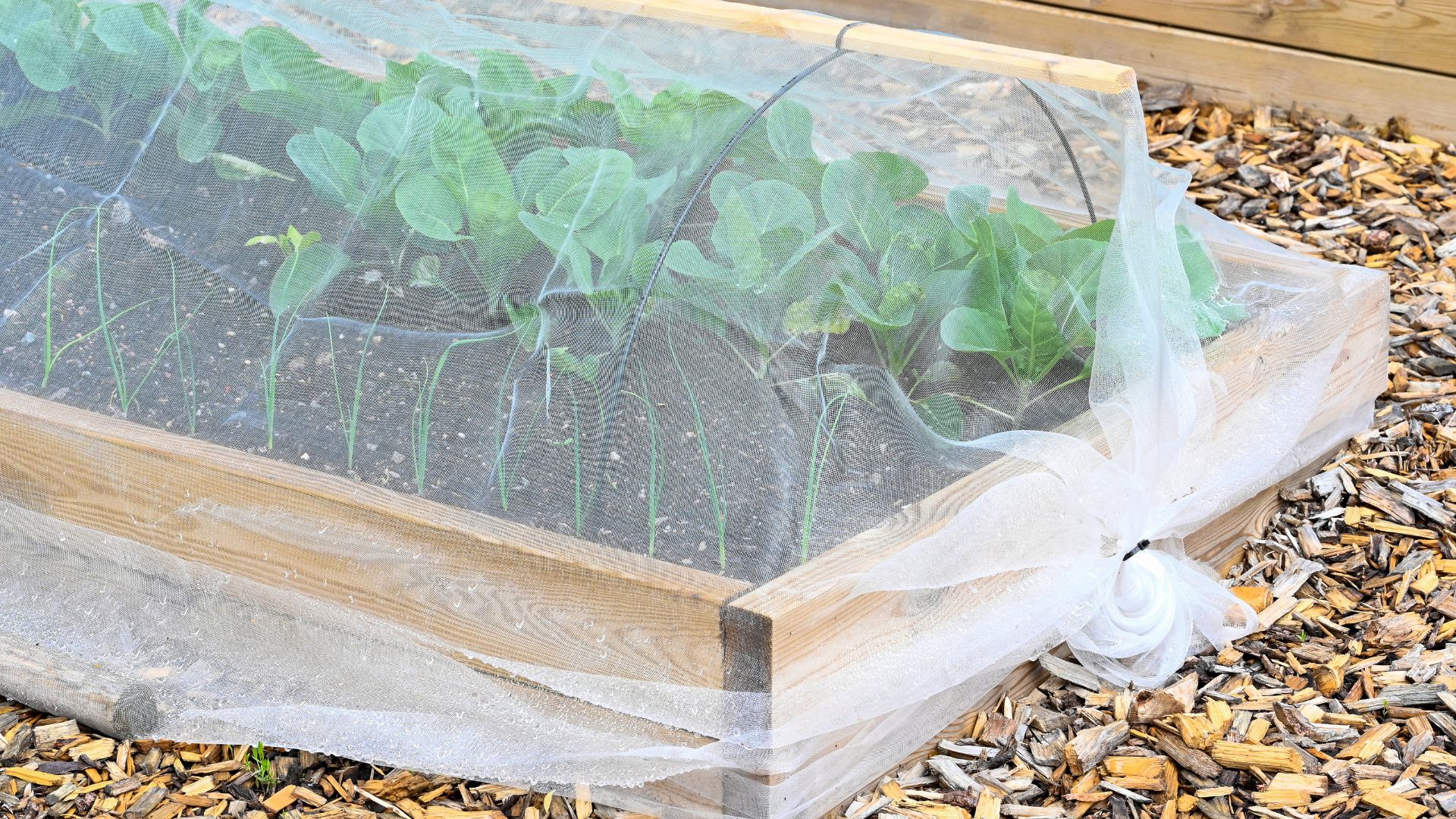
Perhaps it's not just pigeons that are bothering you and your garden, a whole host of birds can cause havoc, especially for budding plants. If this sounds like you, then you may want to try netting.
"I’d suggest also putting up mesh, nets or fencing around your garden. This is a commonly used method because it’s the most effective at keeping birds in general away," says Mihail.
He recommends installing simple full-length netting or some type of bird-proof fencing. Mihail explains, "You can buy the materials from a local garden or hardware store and it’ll easily create a physical barrier which birds will have a hard time getting through."
With this method, you will need to choose the netting material carefully, as some materials might stop enough sunlight from getting through to your plants and stunt their growth. Mihail also highlights the importance of ensuring the barrier is set up in such a way that any pigeons can't get tangled or trapped in it.
FAQS
What attracts pigeons to your garden?
One of the best ways to prevent pigeons from entering your garden is to figure out why they're there in the first place. In the same way you'd get rid of tiny black flies in your home or remove leatherjackets in your lawn, taking away their reason for being there is the best first step.
Speaking to veterinarian and writer for HoundGames, Dr Sara Ochoa, she says, "There are a few different factors that usually attract pigeons, from the availability of food and water sources to ideal nesting areas. One of the biggest is having any kind of bird feeders in your yard, as the spilt seeds below are like a buffet! I often recommend removing temporary food sources like this."
What damage can pigeons do to your garden?
Whilst pigeons on the whole are harmless, there are few things they do that can cause damage to your garden. If you're thinking of starting vegetable gardening for beginners then you might be anti-pigeon sooner than you think.
"The biggest threat with them is that they can destroy any young plants, seedlings and fruit you may have," explains Mihail. Unfortunately using coffee grounds in your garden won't be enough to keep your plants safe from pigeons in this case.
Cleaning expert at Calibre Cleaning, Phi Dang also points out how damaging their droppings can be – not to mention how hard it makes cleaning your patio slabs.
He says, "Pigeon droppings are unpleasant and a real nuisance on patios, cars, and walkways. The acidic nature of pigeon droppings can damage statues, furniture, and other outdoor structures. Their presence can also clog vents and gutters."
Should you have a particularly bad spot in your garden where pigeons like to perch then Dr Daisy May also recommends installing spiky plastic strips. These will stop the birds from wanting to sit there without causing them harm or being an eyesore in your garden.

Emily joined woman&home as a staff writer after finishing her MA in Magazine Journalism from City University in 2023. After writing various health and news content, she now specialises in lifestyle, covering unique cleaning hacks, gardening how-tos, and everything to help your houseplants thrive.
-
 We're in awe of Sienna Miller's easy-going and 'piece-y' hairstyle and how perfect it is for spring
We're in awe of Sienna Miller's easy-going and 'piece-y' hairstyle and how perfect it is for springThis laid-back hairstyle is - quite literally - making waves this season
By Naomi Jamieson
-
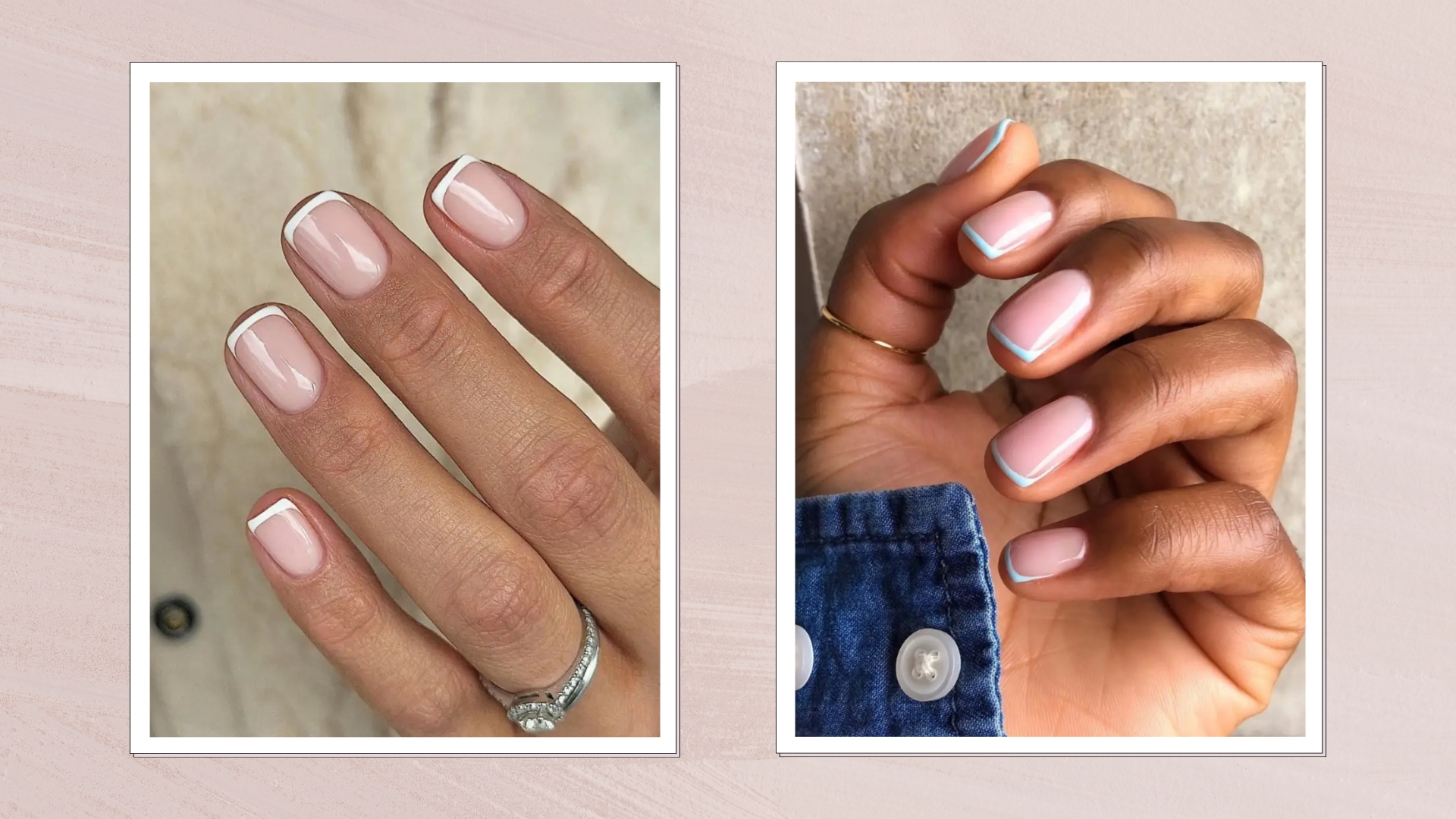 We never thought we'd see this 'dated' manicure make a chic comeback, but here it is - and we're on board
We never thought we'd see this 'dated' manicure make a chic comeback, but here it is - and we're on boardClean and angular, short square French tips are a go-to this season for a practical but stylish manicure...
By Naomi Jamieson
